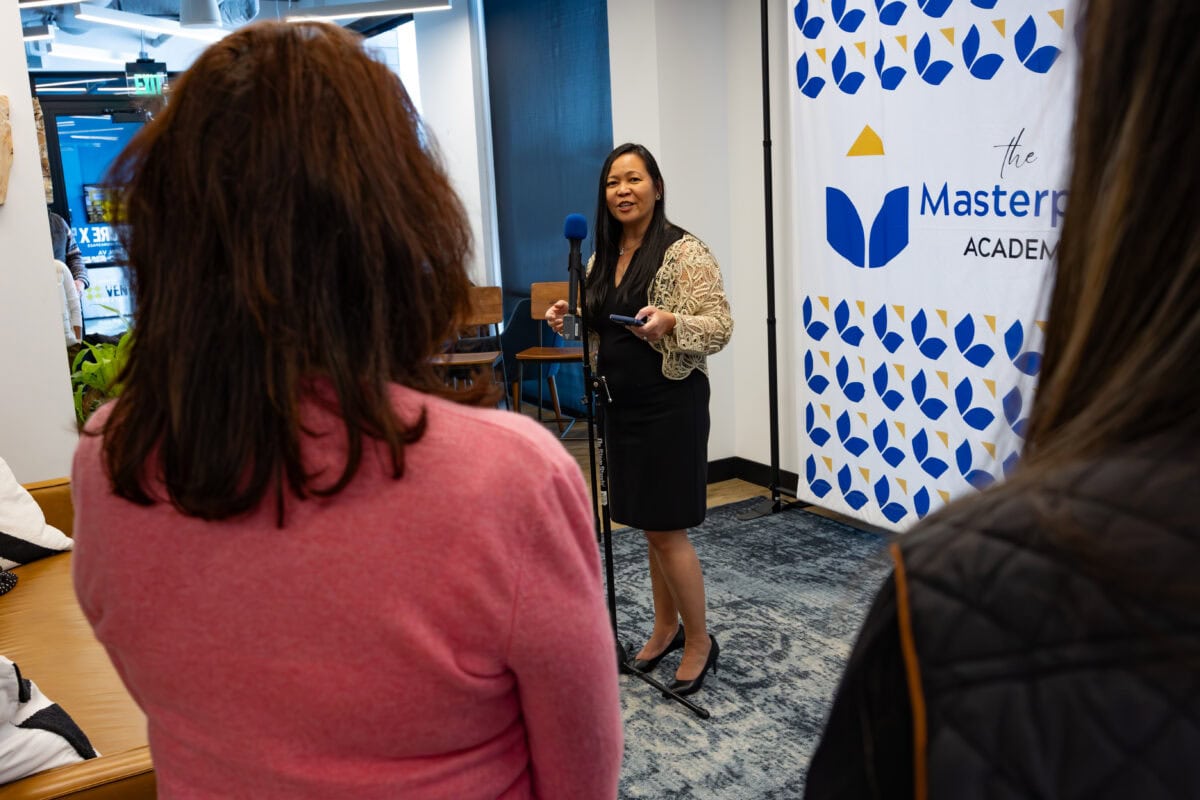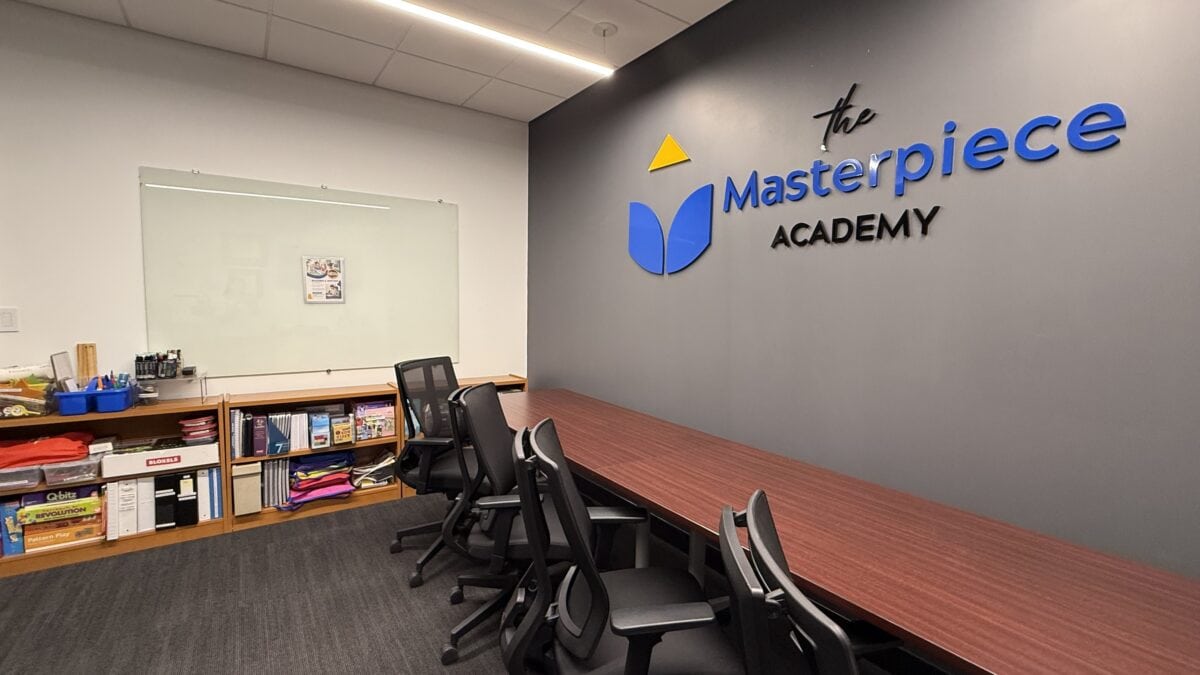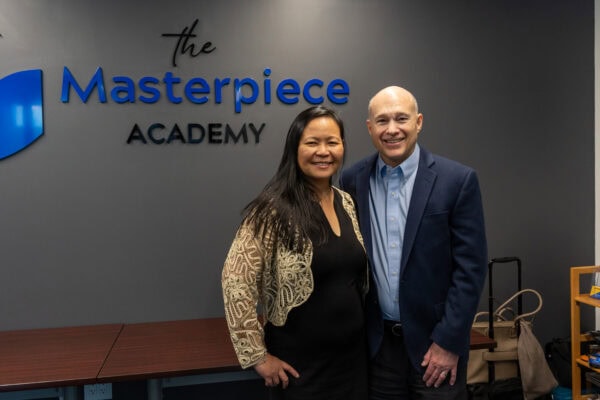Equipping Students for Christ: A Scriptural Foundation for Transformative Education

Education, at its core, is a sacred calling. At the Masterpiece Academy, our work in curriculum development, instructional design, and learning solutions is rooted in Biblical truth, recognizing that every student is uniquely created in the image of God (Genesis 1:27). By embracing the individuality of each learner and rejecting rigid, exclusionary frameworks, we craft curricula that reflect the Creator’s grace, creativity, and purpose.
In today’s world, curriculum is a contested and dynamic field shaped by societal, political, and intellectual forces (Pinar, 2007). Yet, at its heart, the curriculum should reflect the timeless truths of Scripture, ensuring that it educates the mind and nurtures the heart and soul.

Learning Design as a Sacred Responsibility
As Deuteronomy 6:6-7 reminds us: “These commandments that I give you today are to be on your hearts. Impress them on your children. Talk about them when you sit at home and when you walk along the road, when you lie down, and when you get up.” Learning is more than a system of measurable outcomes—it is a relational and spiritual process that shapes learners to glorify God.
Reflecting Biblical Truth in a Dynamic Field
At the Masterpiece Academy, we believe that curriculum is not just a tool for instruction—it is a vessel for glorifying God by nurturing the uniqueness He instills in every child. From my decades of experience in education, I’ve seen how rigid systems and exclusionary practices can stifle creativity and marginalize learners. That’s why we are passionate about creating curricula that reflect Biblical truth, celebrate individuality, and empower students to thrive academically, spiritually, and relationally.
Critiquing Rigid Frameworks: Dewar (2016) critiques curriculum models that reduce education to techne—a technical process focused solely on predetermined outcomes. Such approaches fail to honor the creativity and individuality God has gifted to each learner. At Masterpiece Academy, we intentionally design curricula that reflect the richness of God’s creation, balancing structure with flexibility to nurture every learner’s potential.
Addressing Power and Exclusion: Hidden biases in curriculum can subtly reinforce societal hierarchies and marginalize some students. Cherryholmes (1988) critiques these "hidden curricula," while Kirchgasler (2024) highlights how historical norms classified children into categories of "normalcy" or "deviance," often along exclusionary lines. As educators and advocates, we are committed to ensuring learning solutions rooted in the Biblical truth that all are one in Christ Jesus (Galatians 3:28). Our curricula and learning solutions aim to prepare students not only to succeed academically but also to reflect Christ’s love and truth in an increasingly diverse and interconnected world.

Transformative Education Inspired by Scriptures
Education should be a transformative process, equipping students to live as ambassadors for Christ (2 Corinthians 5:20). Pinar (2007) emphasizes the need for interdisciplinary and global perspectives in the curriculum, a principle that resonates with the Great Commission to make disciples of all nations (Matthew 28:19). At Masterpiece Academy, we design curricula that:
- Encourage Creativity and Critical Thinking: Dewar (2016) and Kirchgasler (2024) argue for flexibility and adaptability in curriculum design. Similarly, we believe that education should inspire students to think critically, engage creatively, and reflect Christ’s teachings in their lives.
- Prioritize Holistic Development: Inspired by Proverbs 22:6, we create curricula that nurture the whole person—academically, spiritually, and relationally—preparing students to live out their God-given calling.
Overcoming the Limits of Efficiency-Driven Education
In my years as an educator, I’ve seen how the pursuit of efficiency has often dominated modern curriculum design. Too often, students are reduced to data points and measurable outcomes, with creativity, individuality, and spiritual growth left behind. Scholars like Kirchgasler (2024) critique this approach, but as a follower of Christ, I find my guidance in Scripture. Proverbs 3:5-6 reminds us to trust in the Lord and lean not on our own understanding, urging us to seek wisdom rooted in Him.
At Masterpiece Academy, we are committed to rejecting purely mechanistic approaches to education. Instead, our curricula prioritize Christ-centered wisdom, focusing on nurturing the whole person—academically, spiritually, and relationally. Education should not be about checking boxes or meeting arbitrary standards; it should be about equipping students to glorify God with their lives and to thrive as the unique individuals He has created them to be. This is the heart of our mission at Masterpiece Academy.
A Call to Action: Building Kingdom-Focused Curricula
Curriculum design is not a neutral endeavor—it carries profound implications for how students perceive themselves, the world, and God. By partnering with Masterpiece Academy, schools and educators can create curricula that reflect God’s truth, inspire creativity, and equip students to serve as light in the world.

About the Author
Krishna Cart, MA Ed. NBCT is the founder and literacy coach at Masterpiece Academy. With three decades of teaching experience, her journey in education began in the Philippines, where she taught at the University of the Philippines and founded her private school. In 2005, she relocated to the United States, where she has continued her passion for shaping young minds and inspiring transformative learning experiences.
Krishna is a proud National Board-Certified Teacher in her second decade of holding this prestigious certification. Her commitment to professional excellence reflects her dedication to equipping students with the tools they need to succeed academically and spiritually.
Once an atheist and agnostic, Krishna experienced a life-changing transformation through her faith in Christ. Today, she and her husband are active leaders in their faith community, serving as hosts of the Bible Bee Family summer study and leaders in marriage ministry. Her testimony of faith fuels her mission to create Christ-centered curricula that empower students to live with purpose, creativity, and faith while glorifying God in all they do.
References
Cherryholmes, C. H. (1988). Poststructuralism, pragmatism, and curriculum. In Power and criticism: Poststructural investigations in education (pp. 130–149). Teachers College Press.
Dewar, M. D. (2016). The Reduction of Education to Curriculum as Techne and its Ontological Consequences. In Education and well-being: An ontological inquiry (pp. 25–49). Palgrave Macmillan.
Kirchgasler, C. (2024). The Orders of Order: Curriculum Design and a Hauntology of Efficiency. In P. P. Trifonas & S. Jagger (Eds.), Handbook of Curriculum Theory, Research, and Practice. Springer International Handbooks of Education.
Pinar, W. F. (2007). Curriculum Theory Since 1950: Crisis, Reconceptualization, Internationalization. In F. M. Connelly, M. F. He, & J. Phillion (Eds.), The SAGE Handbook of Curriculum and Instruction (pp. 491–513). SAGE Publications.
Rainey, D., & Rainey, B. (2018). The Art of Parenting: Aiming Your Child's Heart Toward God. Bethany House.
Blue Letter Bible. 2025 Blue Letter Bible. Retrieved [January 27, 2025], from https://www.blueletterbible.org/
